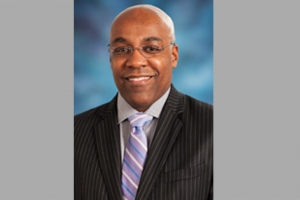
By Illinois Radio Network
SPRINGFIELD – Amid sprawling federal corruption investigations in Illinois, some are looking at what role the Illinois Attorney General plays in rooting out duplicitous elected officials.
Federal corruption investigations have involved several lawmakers in the past year. Former state Sen. Martin Sandoval, D-Cicero, pleaded guilty to accepting bribes to protect a red-light camera company last week. In October, former state Rep. Luis Arroyo, D-Chicago, was charged with bribing an unnamed state senator. State Sen. Tom Cullerton, D-Villa Park, was charged with embezzling from a labor union. He’s pleaded not guilty and remains in office.
Federal investigators have also looked at local officials, including longtime Chicago Alderman Ed Burke and other elected officials at the municipal level.
Gov. J.B. Pritzker has repeatedly said he wants to root out corruption in Illinois. The Illinois State Police, an executive agency under Pritzker’s control, served a search warrant on House Speaker Michael Madigan’s office Wednesday looking for files related to a sexual assault complaint against a former state representative.
And while county state’s attorneys have the ability to investigate public corruption, sexual assault and other crimes, some at the statehouse want to know what role the Illinois Attorney General has in fighting corruption.
State Rep. Grant Wehrli, R-Naperville, who’s on the Illinois Commission on Ethics and Lobbying Reforms, said the Illinois Attorney General’s Office doesn’t have a big enough role.
“They argue they don’t have the purview,” Wehrli said. “I personally take a different tack on that, but I’m sure as part of this group we’re going to see what we can do there to give them a little more meaningful enforcement.”
Messages seeking comment from Attorney General Kwame Raoul’s office about its role in investigating corruption in state government were not immediately returned.
Nicholas Birdsong with the National Conference of State Legislatures said each state’s attorney general does things differently.
“If it’s a criminal complaint, then they have all the powers that are generally involved in that,” Birdsong said. “Sometimes there are some limits, if it’s involving a core legislative duty, then there may be limits based on the principle of legislative immunity.”
Wehrli said there are several areas of concern when it comes to having the Attorney General investigate public corruption.
“A. these pieces of law have not been refreshed in decades and the financial components to the fine are de minimis,” Wehrli said. “So, I think you’re going to see some teeth put into these current pieces of law.”
The Illinois Attorney General Act lays out some of the powers of the office to investigate and prosecute any violation of the Election Code. The act also provides for powers to enforce prevailing wage and other labor laws. It also includes powers related to consumer utilities, consumer fraud, antitrust, immigrant assistance and public records requests through the Public Access Counselor. There’s nothing explicit about public corruption mentioned in the act.
One role laid out in the act is for the Attorney General to attend, present evidence to and prosecute indictments returned by each Statewide Grand Jury. The Statewide Grand Jury Act discusses investigating things like terrorism, street gang activity, money laundering, trafficking of controlled substances or other offenses, but isn’t specific to public corruption.
Former Attorney General Lisa Madigan did look into possible criminal neglect surrounding the legionnaire’s deaths at a veterans’ home in Quincy under the administration of former Gov. Bruce Rauner. That pre-election announcement was seen by the Illinois Republican party as a political move.
Since 1999, a spokesperson with the Illinois Supreme Court said there have been 20 Statewide Grand Jury requests.
Illinois Radio Network can be reached at [email protected].






